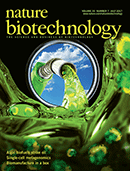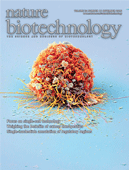A paper describing preclinical work that was foundational for the gene therapy for spinal muscular atrophy now sold as Zolgensma has been retracted for data inaccuracies.
The article, “Rescue of the spinal muscular atrophy phenotype in a mouse model by early postnatal delivery of SMN,” was published in Nature Biotechnology in 2010. Its corresponding author, Brian Kaspar, was at The Ohio State University at the time. Kaspar went on to become the scientific founder and chief scientific officer of AveXis, which created Zolgensma and was acquired by Novartis in 2018 for $8.7 billion.
The paper has been cited 557 times, according to Clarivate’s Web of Science, and referenced in at least 59 patents, according to Altmetric.
According to the retraction notice, the authors contacted the journal last year about “inaccuracies” in the data. After the journal’s investigation, the editors decided to retract the article over the author’s objections. The notice explained:
Continue reading Paper by gene therapy Zolgensma developer retracted because of discrepancies in mouse survival rates
 The author of a 2016 paper describing a potentially invaluable lab tool has retracted it, following heavy criticism from outside groups that could not reproduce the findings.
The author of a 2016 paper describing a potentially invaluable lab tool has retracted it, following heavy criticism from outside groups that could not reproduce the findings.
